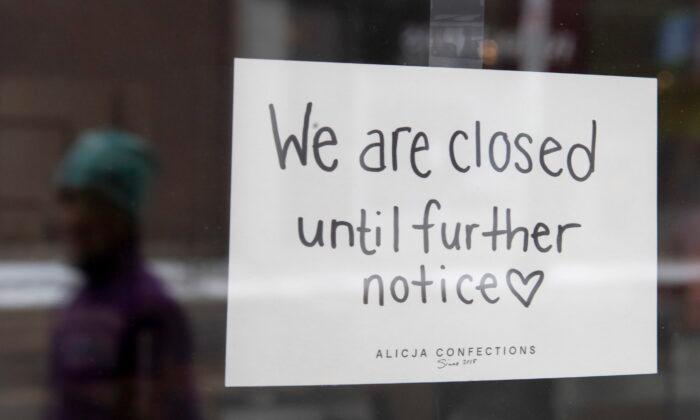Close to 80 percent of Canada’s small businesses need extra time to repay emergency pandemic relief loans without interest charges, according to the Canadian Federation of Independent Business (CFIB).
According to CFIB, “78% of small business owners report that getting extra time to repay their CEBA loan will increase the likelihood of their business’ survival.”
The organization said its research shows about half, 49 percent, of small businesses have not returned to earning normal revenues, especially those in hospitality, arts and recreation, retail, and social services.
“Many small businesses are trying to repay their COVID-related debt, while facing an onslaught of additional challenges. High interest rates, inflation and labour costs are all making it hard for small businesses to keep their head above water, let alone make any dent in the debt they were forced to take on to survive pandemic restrictions,” said Dan Kelly, CFIB president.
Kelly said without the government taking steps to ease the “debt burden” and allowing small businesses to reinvest money into employees or back into the business, he predicts more business failures.
Businesses will “realize they can’t afford to stay open,” he said.
Recent CFIB data indicates that a large majority, 72 percent, of small businesses need to see CEBA repayment rules extended, with 30 percent preferring a deferral of one year and 42 percent indicating two years would be preferable.
Of the businesses that took a loan from CEBA, only 10 percent have been able to repay the debt in full. Another 47 percent said they expect to be able to repay the loan before the end of 2023.
“If the CEBA loan is not repaid by December 31, 2023, small business owners will lose the up to $20,000 forgivable portion and start accruing interest,” said CFIB.
“It’s not too late for Ottawa to show support to small businesses across the country,” said Corinne Pohlmann, senior vice president of national affairs at CFIB. “Given the uncertain economic situation and high debt loads, requiring repayment by end of this year may force many businesses to throw in the towel.”
CFIB has asked the federal government to extend the repayment deadline for pandemic loans until the end of December 2025, or at minimum until the end of 2024, and consider additional debt forgiveness.
CFIB, which is an association of Canadian businesses with 97,000 members, has also advocated for an appeal process for CEBA loan recipients that are ineligible.





